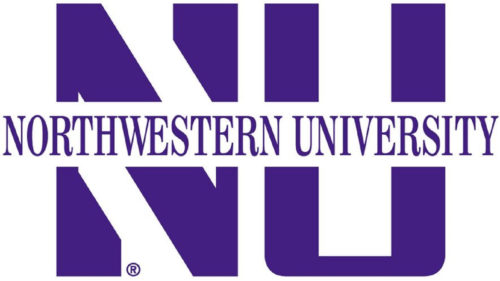According to the U.S. Bureau of Labor Statistics (BLS), the job outlook for medical and health services managers is expected to grow by 20% or more than the average for all other occupations. The typical entry-level education for these roles is a bachelor’s degree. Healthcare administrators are responsible for the planning, coordination, and management of health services that may include a specific department or an entire facility.
Finding a quality school offering a program in healthcare administration can seem mind boggling. When looking for a school, there are several angles to consider. Fairly common considerations are:
- tuition rates
- degree programs
- location
- program formats
However, there are several lesser-known pieces of information about collegiate institutions that are much more important gauges of a school’s overall quality. These factors include:
- rates of acceptance
- retention
- student to faculty ratio
- financial aid
- graduation
You will need to know just how competitive admission is and how likely you are to be able to stay in the program (retention rate). Graduation rate is among the most important pieces of information, and very few potential college students gather that information. Looking at this information can provide you with a clearer picture of the school as a whole.
Ranking Methodology
Programs were ranked on a point system based on annual cost of attendance (both net price and average graduate tuition rate), as well as rates of acceptance, retention, financial aid, graduation, and student to faculty ratio. The purpose of this list is to look at the highest quality programs offering degrees in Health Administration and Healthcare Management. Specializations, awards and achievements earned by the school or department have also been noted.
All of these statistics were provided by The National Center for Education Statistics, a major source for data on colleges, universities, and technical and vocational postsecondary institutions in the United States.
The system controlling how points are awarded is as follows:
Student to Faculty Ratio
- 10:1 or less= 3 Points
- 11:1 to 15:1= 2 Points
- Greater than 15:1= 1 Point
Average Graduate Tuition
- Less than $20,000 per year= 4 Points
- $20,001 to $30,000 per year= 3 Points
- $30,001 to $40,000 per year= 2 Points
- Greater than $40,000 per year= 1 Point
Net Price
- Less than $20,000 per year= 3 Points
- $20,001 to $30,000 per year= 2 Points
- Greater than $30,000 per year= 1 Point
Financial Aid Rate
- Greater than 80%= 1 Point
Graduation Rate
- Greater than 60%= 1 Point
Acceptance Rate
- Less than 50%= 1 Point
Retention Rate
- Greater than 80%= 1 Point
Ranking the Top 20 Health Administration and Healthcare Management Degree Programs Based on Overall Quality Measures
#20 – Baylor University – Waco, Texas
MBA in Healthcare Administration

Student to Faculty Ratio: 14:1
Acceptance Rate: 39%
Retention Rate: 90%
Financial Aid Rate: 98%
Graduation Rate: 77%
Net Price: $37,745/year
Average Graduate Tuition Rate: $30,888/year
Other Degrees or Specializations Offered:
Accreditations: Southern Association of Colleges and Schools, Commission on Colleges, AACSB, CAHME
Points: 9
The MBA in healthcare administration offered by Baylor University is offered through the Robbins Institute for Health Policy and Leadership. Baylor is one of the top schools in the nation for healthcare management programs according to U.S. News and World Report. Healthcare courses cover areas like:
- healthcare finance
- healthcare law and ethics
- executive leadership in healthcare administration
Baylor offers a unique seven-month paid Executive Residency with a leading health organization.
#19 – Northeastern University – Boston, Massachusetts
Bachelor of Science in Health Management – Online
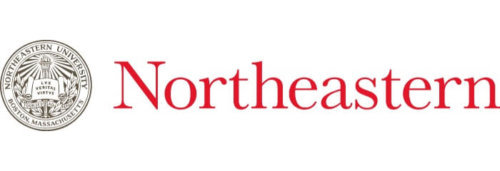
Student to Faculty Ratio: 14:1
Acceptance Rate: 27%
Retention Rate: 97%
Financial Aid Rate: 75%
Graduation Rate: 87%
Net Price: $30,784/year
Average Graduate Tuition Rate: $24,027/year
Other Degrees or Specializations Offered: Healthcare Management MBA Concentration
Accreditations: New England Commission of Higher Education
Points: 9
The College of Professional Studies at Northeastern University offers an online Bachelor of Science in Health Management. It’s ideally suited for business savvy students with a passion for healthcare. This online program focuses on combining the skills and knowledge required for success in the health management industry. Offered completely online, students become competent in:
- management and finance
- law
- regulation and policy
- organizational operations
Courses cover areas like:
- healthcare policy
- health informatics
- financial accounting
Both full and part-time program options are available. New students are admitted during the fall, spring, and summer semesters.
#18 – Northwestern University – Evanston, Illinois
MBA with an emphasis in Healthcare Management
Student to Faculty Ratio: 6:1
Acceptance Rate: 9%
Retention Rate: 98%
Financial Aid Rate: 61%
Graduation Rate: 94%
Net Price: $26,099/year
Average Graduate Tuition Rate: $54,120/year
Degrees or Specializations Offered: Life Sciences/Products Track or the Payer/Provider Track
Accreditations: Higher Learning Commission
Points: 10
The cutting edge Program on Healthcare at Kellogg (HCAK) offered by the Kellogg School of Management at Northwestern University is an MBA program specializing in healthcare management. All students complete foundational courses that expose them to fundamental issues affecting healthcare. Students then take a deeper dive by choosing courses unique to life science companies or healthcare services. The final program phase is focused on experiential learning, giving students the opportunity to use their skills in a field project. The HCAK program also offers students a rich mix of academic, professional, and mentorship opportunities that prepare students for successful healthcare careers.
#17 – Johns Hopkins University – Baltimore, Maryland
Master of Health Administration
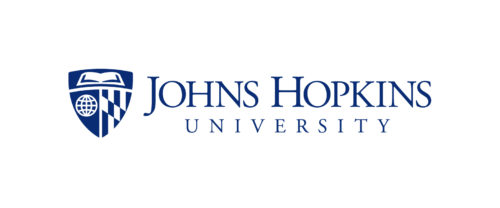
Student to Faculty Ratio: 7:1
Acceptance Rate: 13%
Retention Rate: 97%
Financial Aid Rate: 68%
Graduation Rate: 93%
Net Price: $29,066/year
Average Graduate Tuition Rate: $53,740/year
Accreditations: Middle States Commission on Higher Education, AUPHA
Points: 10
Johns Hopkins University offers a top master of health administration considered one of the best in the country by U.S. News and World Report. This accelerated program offers a diverse curriculum focused on the current economic, social, and technological issues affecting the healthcare industry. Students are enrolled in six to seven courses per term during their first year. During the second year, students complete an 11 month full-time field placement working for a healthcare organization. Courses during the second year are available online for students with field placements around the country.
#16 – Carnegie Mellon University – Pittsburg, Pennsylvania
Master of Science in Health Care Policy & Management (MSHCPM)
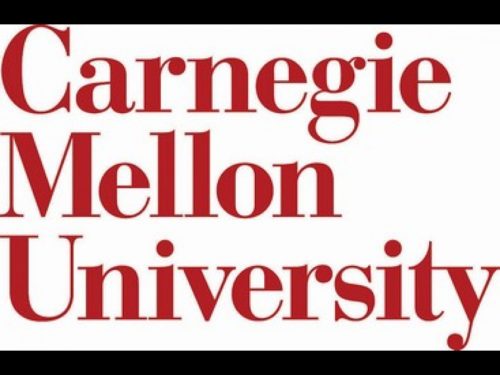
Student to Faculty Ratio: 10:1
Acceptance Rate: 22%
Retention Rate: 96%
Financial Aid Rate: 60%
Graduation Rate: 89%
Net Price: $29,817/year
Average Graduate Tuition Rate: $43,815/year
Accreditations: Middle States Commission on Higher Education
Points: 10
Carnegie Mellon University features a master’s in heath care policy and management with competency areas in:
- public policy
- public health
- population health
- health care delivery
The curriculum is rich with unique elective course offerings like:
- high reliability in health care
- evidence based management
- public policy implementation
- health care geographic information systems
This two-year program gives students many opportunities through experiential learning including internships, apprenticeships, and a team-based capstone project working with top industry professionals.
#15 – Cornell University – Ithaca, New York
The Sloan Program in Health Administration
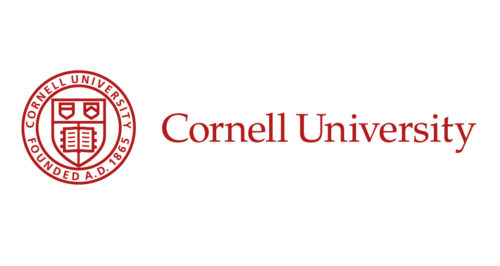
Student to Faculty Ratio: 9:1
Acceptance Rate: 13%
Retention Rate: 97%
Financial Aid Rate: 60%
Graduation Rate: 93%
Net Price: $31,449/year
Average Graduate Tuition Rate: $29,500/year
Degrees or Specializations Offered:
Accreditations: Middle States Commission on Higher Education, CAHME
Points: 10
The Sloan Program in Health Administration at Cornell University prepares students for a successful career in healthcare leadership. Students are prepared to work in a variety of settings including:
- pharmaceutical companies
- hospitals
- long-term care facilities
The curriculum includes hands on training opportunities through a summer internship, a colloquium series that brings industry experts to campus, field trip immersions, and a mentorship program .
#14 – University of Pittsburgh – Pittsburg, Pennsylvania
Master’s in Health Administration
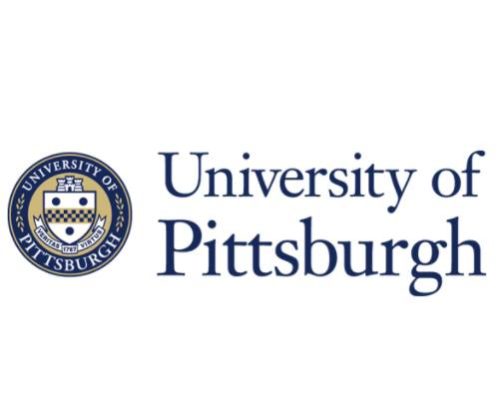
Student to Faculty Ratio: 14:1
Acceptance Rate: 60%
Retention Rate: 93%
Financial Aid Rate: 77%
Graduation Rate: 82%
Net Price: $22,848/year
Average Graduate Tuition Rate: $22,846/year in-state and $38,736/year out-of-state
Other Degrees or Specializations Offered:
Accreditations: Middle States Commission on Higher Education, CAHME
Points: 10
The University of Pittsburg features one of the best healthcare management programs in the nation according to U.S. News and World Report. It’s the highest ranked program in Pennsylvania. This program includes 60 credit hours of coursework and essay research. Coursework is offered in areas like:
- health policy and management
- public health foundations
- organizational studies and management
An on-site management residency in a healthcare organization gives students valuable hands-on experience working with industry leaders.
#13 – Loyola University – Chicago, Illinois
BS Healthcare Administration
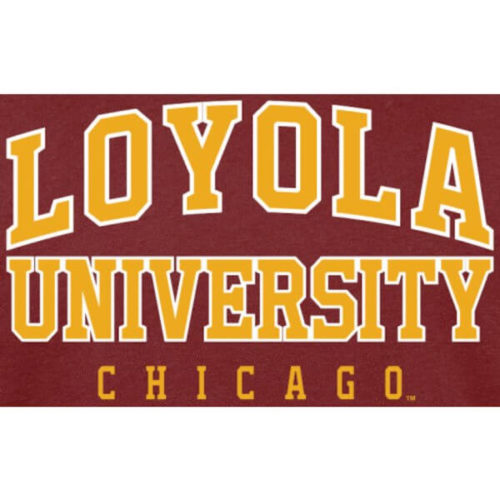
Student to Faculty Ratio: 14:1
Acceptance Rate: 71%
Retention Rate: 83%
Financial Aid Rate: 98%
Graduation Rate: 77%
Net Price: $34,526/year
Average Graduate Tuition Rate: $18,594/year
Other Degrees or Specializations Offered: MBA Healthcare Management (MBA-HCM)
Accreditations: Higher Learning Commission
Points: 10
The Parkinson School of Health Sciences and Public Health at Loyola University features a bachelor’s in healthcare administration. It provides students with the knowledge, skills, and professional values to be a successful industry leader. Course offerings include:
- health care workforce environment
- health care policy
- health equity
- global health
Students complete a supervised internship during their senior year to gain valuable hands-on experience. Interested in earning a graduate degree in health administration or public health? Loyola also offers a five year BS in healthcare administration with an MBA or MPH dual degree option.
#12 – Brenau University – Gainesville, Georgia
Master of Business Administration in Health Care Management
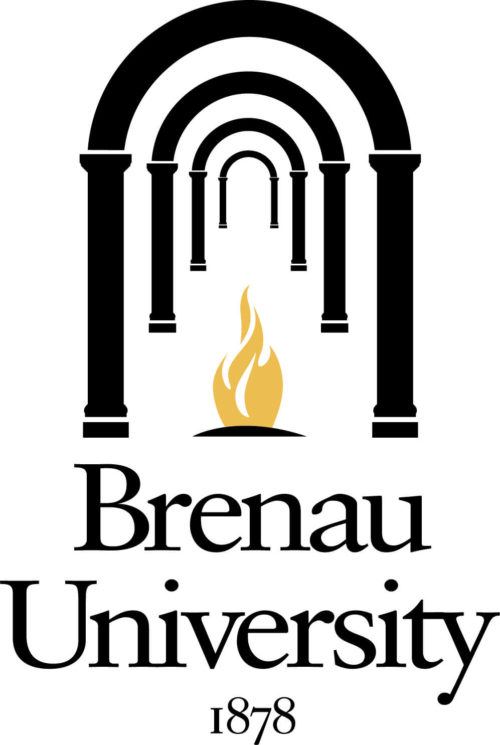
Student to Faculty Ratio: 11:1
Acceptance Rate: 66%
Retention Rate: 65%
Financial Aid Rate: 97%
Graduation Rate: 49%
Net Price: $21,021/year
Average Graduate Tuition Rate: $12,510/year
Degrees or Specializations Offered: Bachelor of Science in Health Care Administration
Accreditations: Southern Association of Colleges and Schools, Commission on Colleges
Points: 10
The Master of Business Administration with a concentration in Healthcare Management at Brenau University prepares students for success in a competitive healthcare environment. The program is well suited for clinical professionals who want increased leadership responsibility. The Healthcare Management MBA is a 15-course, 45-credit hour degree program culminating in a Master’s of Business Administration degree and a certificate in Healthcare Management. Courses cover areas like:
- law and policy development in health care
- financial management in health care
- ethics and leadership in health care
This top healthcare program is available on-campus or online.
#11 – Andrews University – Berrion Springs, Michigan
Bachelors Degree in Allied Health Administration for Health-Care Professionals
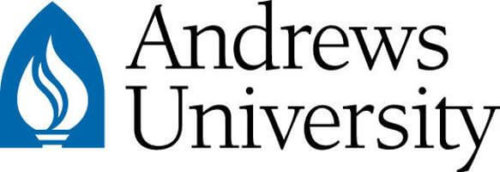
Program Website
Student to Faculty Ratio: 10:1
Acceptance Rate: 58%
Retention Rate: 88%
Financial Aid Rate: 100%
Graduation Rate: 55%
Net Price: $21,566/year
Average Graduate Tuition Rate: $26,520/year
Accreditations: Higher Learning Commission
Points: 11
The Department of Medical Laboratory Sciences at Andrews University offers a Bachelor of Science degree in Allied Health Administration. The program is designed for healthcare professionals who need the academic foundation for a successful career in management or administration. Beyond the general education requirements, students complete a business and administrative core and a unique four-credit practicum in administration. The program is open to individuals with an associate degree or a two-year certificate/license in an allied-health professional area such as:
- diagnostic ultrasound
- nuclear medicine
- physician assistant
- radiation therapy
- radiologic technology
- respiratory therapy
- special procedures in radiologic technology.
#10 – Temple University – Philadelphia, Pennsylvania
Master of Health Administration

Student to Faculty Ratio: 14:1
Acceptance Rate: 57%
Retention Rate: 90%
Financial Aid Rate: 78%
Graduation Rate: 71%
Net Price: $22,940/year
Average Graduate Tuition Rate: $16,488/year in-state and $22,698/year out-of-state
Accreditations:
Middle States Commission on Higher Education
Points: 11
The Fox Master of Health Administration at Temple University is a great choice for :
- mid-level healthcare managers
- physicians or nurse managers
- consultants who need advanced management training to advance their careers
Competencies in opportunity realization, implementation management, business reasoning, and financial acuity are interwoven throughout the program. The flexible, part-time program features core courses which cover:
- law and ethics
- managing risk or health risk
- health systems organization and development
- leadership and strategy.
#9 – Virginia Commonwealth University – Richmond, Virginia
Master of Health Administration and Master of Science in Health Administration
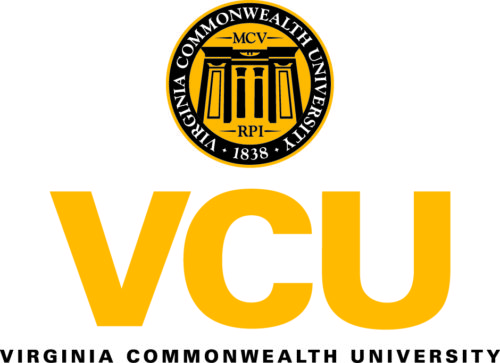
Student to Faculty Ratio: 18:1
Acceptance Rate: 84%
Retention Rate: 83%
Financial Aid Rate: 81%
Graduation Rate: 63%
Net Price: $20,741/year
Average Graduate Tuition Rate: $12,217/year in-state and $25,032/year out-of-state
Degrees or Specializations Offered:
Accreditations: Southern Association of Colleges and Schools, Commission on Colleges
Points: 11
The College of Health Professions at Virginia Commonwealth University features two unique top healthcare master’s programs. The Master of Health Administration is an “industry specific” leadership program focusing on the uniqueness of the health care industry. The Master of Science in Health Administration is a professional program offered primarily online for working health care professionals. The MHA includes a 12-month paid administrative residency that gives students valuable hands-on training and experience. The MSHA can be completed in just 22 months and attracts clinicians, executive level managers, and mid-career managers seeking professional training.
#8 – Concordia University Saint Paul – Saint Paul, Minnesota
Bachelor of Arts in Health Care Administration
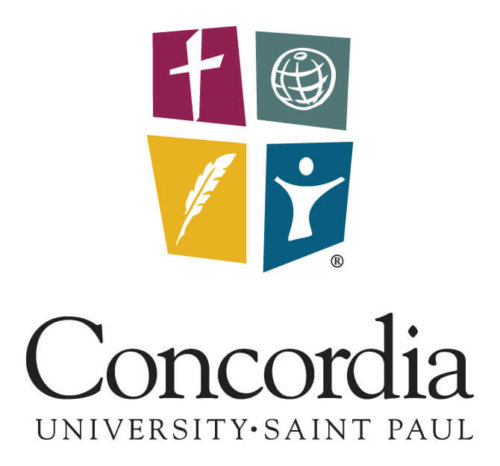
Student to Faculty Ratio: 18:1
Acceptance Rate: 55%
Retention Rate: 65%
Financial Aid Rate: 98%
Graduation Rate: 55%
Net Price: $19,714/year
Average Graduate Tuition Rate: $8,550/year
Other Degrees or Specializations Offered: Health Care Management Master of Business Administration
Accreditations: Higher Learning Commission
Points: 11
The bachelor’s in health care administration at Concordia University Saint Paul is an online program that prepares students to become health care leaders. Courses explore current industry trends while teaching the business principles that impact these trends. Worried about finding a well-paying job after graduation? 95% of CPS grads have job offers within a year of graduation, earning 44% more than the national average.
#7 – Ball State University – Muncie, Indiana
MBA-Health Economics, Policy, and Administration
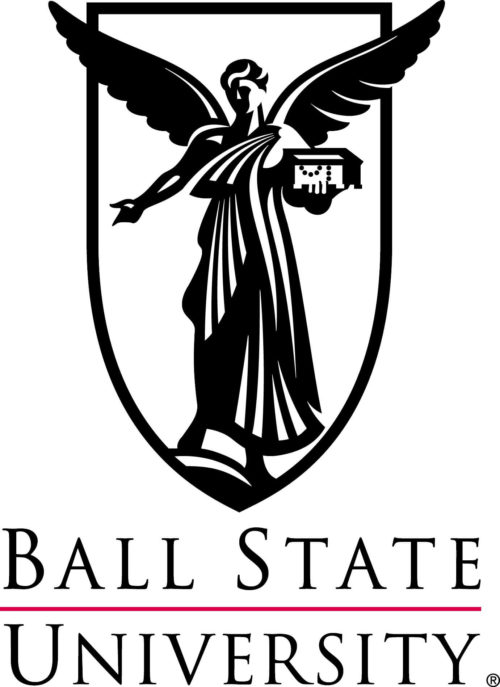
Student to Faculty Ratio: 17:1
Acceptance Rate: 62%
Retention Rate: 78%
Financial Aid Rate: 90%
Graduation Rate: 62%
Net Price: $13,535/year
Average Graduate Tuition Rate: $8,730/year in-state and $21,666/year out-of-state
Degrees or Specializations Offered:
Accreditations: Higher Learning Commission, Association to Advance Collegiate Schools of Business
Points: 12
This MBA program at Ball State University is an AACSB accredited program available online, on-campus, or both. The program focuses on health economics, policy, and administration. Students can complete the program either part-time or full-time and can begin during the fall, spring, or summer semester. The healthcare administration concentration area includes courses in:
- health economic analysis
- health economics and policy
- either HR management or risk management and insurance.
#6 – University of Alabama at Birmingham – Birmingham, Alabama
Master of Science in Health Administration (MSHA)
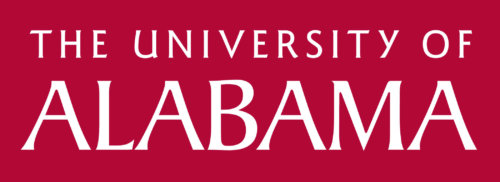
Student to Faculty Ratio: 19:1
Acceptance Rate: 92%
Retention Rate: 84%
Financial Aid Rate: 94%
Graduation Rate: 53%
Net Price: $17,016/year
Average Graduate Tuition Rate: $8,100/year in-state and $18,540/year out-of-state
Accreditations: Southern Association of Colleges and Schools, Commission on Colleges, CAHME
Points: 12
The University of Alabama at Birmingham features the #1 ranked health administration program in the nation according to U.S. News and World Report. This full-time, CAHME accredited program values:
- teamwork
- integrity
- diversity and inclusion
- innovation
Students just completing their bachelor’s degree or those changing careers can pursue their degree in a traditional residential format. Those with at least five years of healthcare experience can pursue the executive MSHA offered in a blended format. Students complete a capstone experience during the second year of the program, visiting national and international healthcare organizations.
#5 – University of Michigan – Ann Arbor, Michigan
Master Of Health Services Administration Program
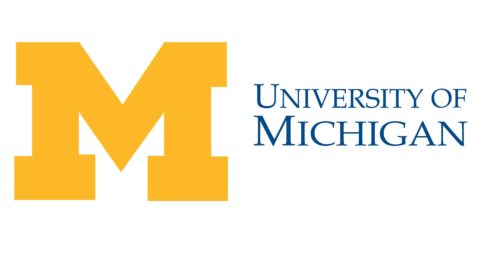
Student to Faculty Ratio: 11:1
Acceptance Rate: 27%
Retention Rate: 97%
Financial Aid Rate: 65%
Graduation Rate: 92%
Net Price: $16,408/year
Average Graduate Tuition Rate: $23,128/year in-state and $46,678/year out-of-state
Degrees or Specializations Offered:
Accreditations: Higher Learning Commission
Points: 13
The Master of Health Services Administration Program at the University of Michigan is a 60 credit hours and takes two years to complete. Students complete a series of courses designed to educate future leaders in areas of health management and policy. Courses cover areas like:
- biostatistics
- healthcare accounting
- health services systems
- principles of environmental sciences
Students compete an internship during the summer between their first and second year, providing them with valuable hands-on training and experience.
#4 –University of Minnesota – Minneapolis, Minnesota
Master of Healthcare Administration (MHA)
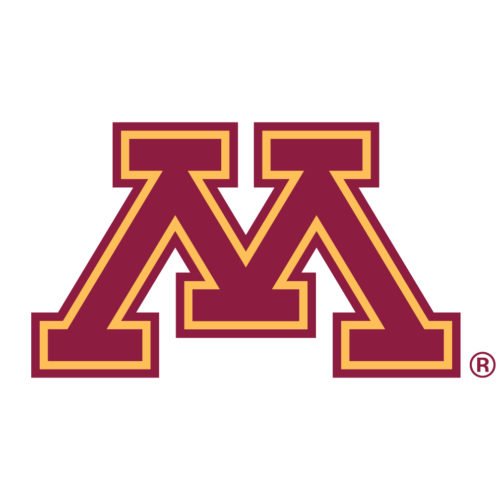
Student to Faculty Ratio: 17:1
Acceptance Rate: 50%
Retention Rate: 93%
Financial Aid Rate: 81%
Graduation Rate: 80%
Net Price: $16,808/year
Average Graduate Tuition Rate: $17,064/year in-state and $26,412/year out-of-state
Accreditations: Higher Learning Commission, CAHME
Points: 13
The School of Public Health at the University of Minnesota features a top ranked health care administration master’s program. Graduates are part of the MHA Alumni Association, the largest of its kind. A full-time MHA program is available on campus for students for students with minimal health care management experience. The executive MHA is designed for professionals currently employed in the industry who want to advance their management skills. The program boasts 100% of graduates are employed or have a fellowship by July of their graduating year.
#3 – The Ohio State University – Columbus, Ohio
Master of Health Administration
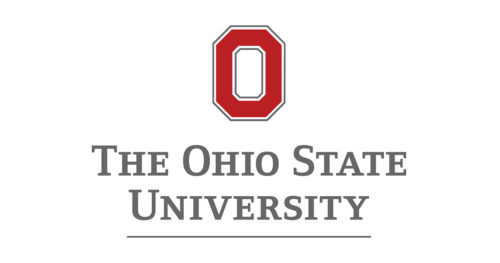
Student to Faculty Ratio: 19:1
Acceptance Rate: 48%
Retention Rate: 94%
Financial Aid Rate: 80%
Graduation Rate: 83%
Net Price: $18,042/year
Average Graduate Tuition Rate: $11,560/year in-state and $34,064/year out-of-state
Accreditations: Higher Learning Commission, CAHME
Points: 13
The Ohio State University features a top master’s in health administration ranked 7th in the nation by U.S. News and World Report. This CAHME accredited program offers a unique clinical rotations course designed to bridge medicine and management. All students also complete an administrative residency between their first and second year to gain practical field experience. Course competencies cover:
- management function and skills
- health systems and community
- leadership and professionalism
- analytic skills
Between 90-95% of MHA graduates have professional positions in health care within three months of earning their degree.
#2 – The University of Iowa – Iowa City, Iowa
Master of Health Administration
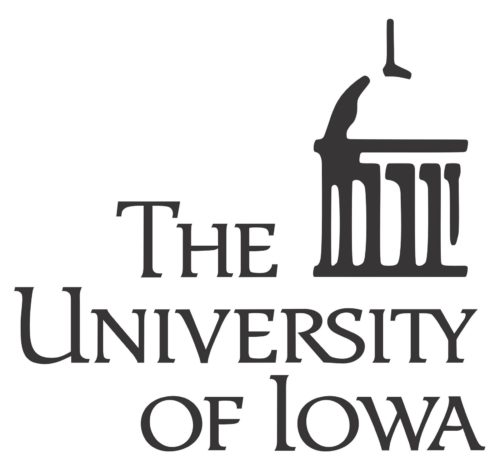
Student to Faculty Ratio: 16:1
Acceptance Rate: 60% (for the MHA program)
Retention Rate: 86%
Financial Aid Rate: 90%
Graduation Rate: 95% (for the MHA program)
Net Price: $14,845/year
Average Graduate Tuition Rate: $9,785/year in-state and $28,726/year out-of-state
Degrees or Specializations Offered:
Accreditations: Higher Learning Commission, CEPH, CAHME
Points: 13
The top health administration master’s program at The University of Iowa is focused on patient-centered service organizations and strong business skills. This 60 credit hour program can be completed in just 21 months. Core courses cover areas like:
- healthcare ethics
- health economics
- health information systems
- healthcare management
All students complete an internship and integrative capstone experience. Elective course offerings allow students to deepen their knowledge of or take on an additional practicum.
#1 – University of North Carolina – Chapel Hill, North Carolina
Master of Healthcare Administration (MHA)
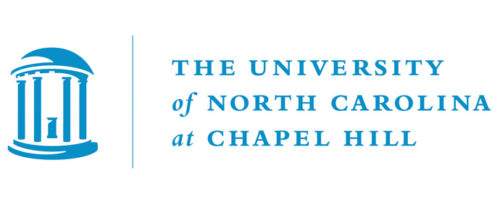
Student to Faculty Ratio: 13:1
Acceptance Rate: 24%
Retention Rate: 96%
Financial Aid Rate: 67%
Graduation Rate: 91%
Net Price: $11,100/year
Average Graduate Tuition Rate: $10,243/year in-state and $27,454/year out-of-state
Accreditations: Southern Association of Colleges and Schools, Commission on Colleges, CAHME
Points: 14
Our top choice for a healthcare administration degree program is the MHA program at the Gillings School of Public Health at the University of North Carolina. The program is offered in residential and executive formats. It’s ranked #3 in the country by U.S. News and World Report. Courses cover areas like:
- healthcare financial management
- strategic planning and marketing
- law and ethics in health administration
- IT in health services administration
Professional development opportunities are available through a variety of student groups including:
- the Healthcare Executives Student Association
- AcademyHealth UNC Student Chapter
- the Health Policy and Management Master’s Student Council.
Related Resources:
- Top Growing Healthcare Jobs
- 20 Highest Paid Non-Physician Jobs in Healthcare
- 25 Great Scholarships for Healthcare Management Students
- 10 Top Healthcare IT Certifications
- 25 Most Affordable Online Bachelor’s in Health Management
- Top 15 Online Healthcare Quality and Patient Safety Master’s Programs
- 100 Great Websites for Health Care Management Students
- Top 20 Certification Programs in Healthcare Management
- Top 20 Executive MBA in Healthcare Programs
- Top 20 Graduate Programs in Health Care Management in the West
- Top 20 Master’s Degree Programs in Healthcare Management at Smaller Colleges in the North
- Top 20 Master’s Degree Programs in Healthcare Management: Best Bang for the Buck
- Top 20 Master’s in Healthcare Management Online / Online MBA Healthcare Administration
- Top 20 Master’s in Healthcare Management Online/Online MBA Healthcare Administration
- Top 20 MBA Programs with a Specialization in Healthcare Management
- Top 20 Midwest Master’s in Health Care Management Degree Programs
- Top 20 Online Bachelor’s Degree Programs in Healthcare Management
- Top 20 Online Master’s in Healthcare Administration and Healthcare Management
- Top 20 Part-Time MBA Degrees with a Specialization in Healthcare Management
- Top 25 Graduate Healthcare Management Degrees
- Top 25 Health Information Management Degree Programs
- Top 25 Public Ivy Colleges Offering a Healthcare Management Degree

